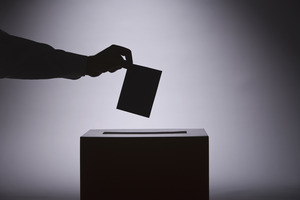 Eight thousand air miles from New York City, the estimated 860,000 inhabitants of the tiny island country of Fiji are preparing for their first Democratic Parliamentary elections since 2006 on Sept. 17.
Eight thousand air miles from New York City, the estimated 860,000 inhabitants of the tiny island country of Fiji are preparing for their first Democratic Parliamentary elections since 2006 on Sept. 17.Located in Melanesia in the South Pacific Ocean, Fiji is made up of more than 332 individual islands and more than 500 smaller islands. But only 110 islands are permanently inhabited, amounting to a total land area of about 18,300 square kilometers. That equates to 7,100 square miles or just a little smaller than New Jersey's total land area of 7,354 square miles).
Since becoming independent from the United Kingdom in 1970, four coups have erupted in Fiji: two in 1987, one in 2000 and one in late 2006. The military has been either ruling directly or heavily influencing governments since 1987.
Fiji is usually described as a parliamentary representative democratic republic. The prime minister heads the government. The president is head of state and also heads a multi-party system.
The government wields executive power. Legislative power is vested in both the government and the Parliament. The judiciary is independent of the executive and the legislature.
But despite its small size, Fiji, like many other democracies, has experienced ups and downs in its recent political growth.
For example, Fiji has held nine general elections for the House of Representatives since becoming independent in 1970. There were numerous elections under colonial rule, but only one with universal suffrage (in 1966). In this period, Fiji has had three constitutions, and the voting system has changed each time.
There are no general elections for the Senate: The 32 Senators are nominated, not elected.
Fijians will be pleased to learn the one-day election Sept. 17 will be a paid holiday.
Last year Fiji's President, Ratu Epeli Nailatikau, approved the nation's new constitution, paving the way for this year's elections which he vows will be free and fair.
The new constitution was drawn up by the military regime after it scrapped a draft supplied by a specially selected constitutional committee.
The recent moves have seen Fiji's suspension from the 53-country Commonwealth of Nations partially lifted.
The elections will be the first since the military coup led by current interim Prime Minister Frank Bainimarama in December 2006.
Commodore Bainimarama stepped down as Commander of the Fiji Defense Force on March 5 and announced he will run for office in September.
Under Fiji's laws governing political parties, members of the Republic of Fiji Military Forces are not permitted to be members of political parties, and must not engage in political activity.
The Acting Permanent Secretary for Justice, Mohammad Saneem, has resigned to take up the role of Supervisor of Elections.
So once again, it looks like Bainimarama and his cronies will continue to rule the tiny republic.
Australia is reviewing travel bans and other sanctions placed on Fiji after Bainimarama took power in the 2006 military coup.
The last time Fijians voted was in 2006, when the SDL party led by Laisenia Qarase won narrowly against the Fiji Labor Party.
But Qarase's term as prime minister was short-lived after being forced to step down as a result of the coup.
Political observers in Australia and New Zealand have said the military takeover was prompted by deteriorating relations between Bainimarama and Qarase. Their quarrel involved questions on the illegality of previous coups and ongoing tensions between native Fijians and Fijians of Indian origin.
The coup was largely condemned by the international community, which imposed tough sanctions on Fiji.
The condemnations were led by Australia and New Zealand, whose leaders demanded a swift return to a democratic government.
The relations worsened in 2009 when Bainimarama expelled the high commissioners of Australia and New Zealand after accusing Canberra of "bullying" Fiji.
He said that Australia and New Zealand had tried to undermine Fiji's judiciary and weaken its economy.
For its size, Fiji has one of the most developed economies in the Pacific island realm due to an abundance of forest, mineral, and fish resources. Today, the main sources of foreign exchange are its tourist industry and sugar exports. The country's currency is the Fijian dollar.

 By
By 